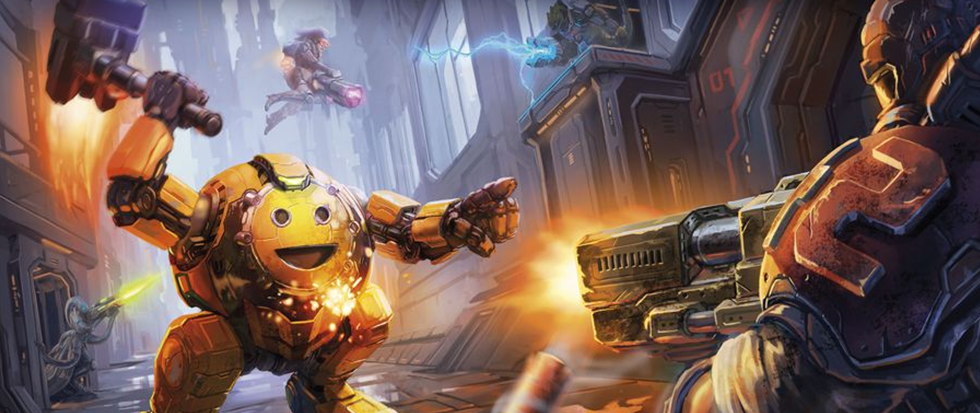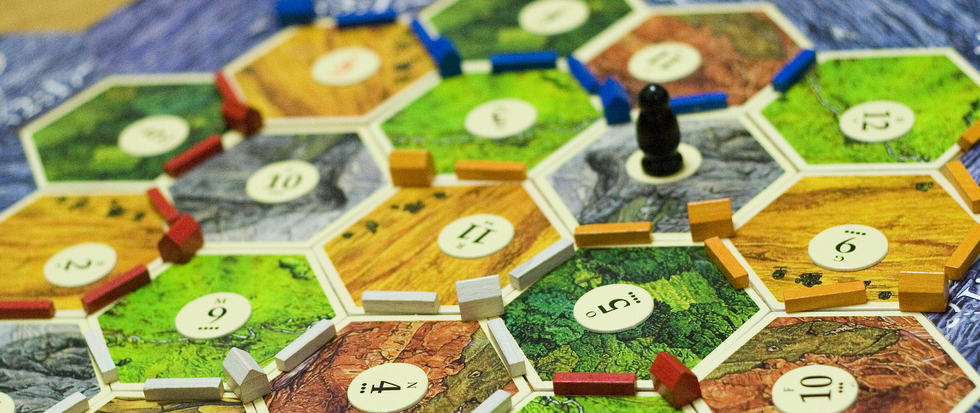
The Board Soul – Focus
Connecting with a deck building game can be more difficult than it looks. The focus is usually on the card marketplace and your own personal deck, and both end up in a murky, random place. When you draw up to your hand of five cards, those five cards are the only thing you can cling to, because you have no idea what your deck has in store for you past them. The nebulous nature of future game states means you’re often flying by the seat of your pants, grasping for a strategy that may or may not come together depending on how your deck behaves. It’s fun to slowly build up your deck and create an economic engine that will eventually get you the most points, but so much of the game lives in a place that the players can’t go.
The current crop of deckbuilding games attempt to solve this problem by shifting the focus away from your personal decks and to a board, and none do it better then Clank. Clank is a deck building dungeon delver where you need to go deeper and deeper into a dungeon, claim an artifact, and get out before the dragon kills you. To do this, certain cards you can buy and play will give you movement points, letting you move around the spaces on the tangled dungeon board. While you’re doing so, certain cards and locations will force you to make noise – the titular Clank – agitating the sleeping dragon further and further. The noise you make goes into a bag which you must draw from, and if your cubes get drawn, you take damage. Take enough damage, and you’re out of the game.
What’s great about the Clank system is that it puts everyone on a timer, creating tension and forcing players to focus on the board, planning the best paths through the convoluted dungeon to get the artifact, the most points, and the most convenient route back to the surface. Because if you die below the midpoint of the dungeon, then you’re eliminated from the game. If you make it back to the top half, then you’re still eligible to win as your beaten body is dragged back to civilization. Making it all the way out will net you a big chunk of extra points. Whenever someone picks up an artifact, the dragon gets angrier, forcing you to draw even more cubes from the bag of Clank, putting everyone ever more in peril. And once one person escapes, the dragon escalates even further, putting you on the clock before everyone is decimated.
Clank is a great game of pushing your luck, something you can’t say about most other deck builders. Do you try to blitz the game, grabbing the closest artifact to the surface and escape while everyone else is still descending? Or do you go for the coveted 30 point artifact that lies in the deepest part of the dungeon, knowing full well that you’ll have to drag it all the way back up? Also unlike most deck builders, you can see your opponents’ progress, letting you alter your strategy on the fly, whereas with other deck builders, you’re mostly in the dark about how well your opponents are doing until the points are counted in the end. Adding the board puts the focus on the shared experience that everyone at the table is having instead of in your own head, and the game’s all the better for it.
You’re racing both the board and other players, whose positions on the board are always on full display, reminding you of where you stand. Your deck is still somewhat of an unknown due to the nature of decks, but the board represents a tangible, vital piece of feedback. Clank understands the importance of feedback whether it’s through the board or the escalating Clank you produce, making it an essential deck building game experience.





